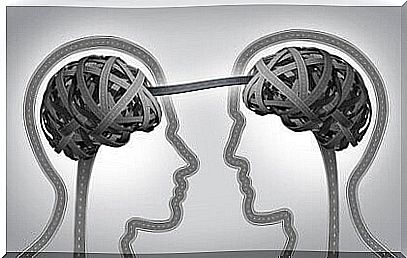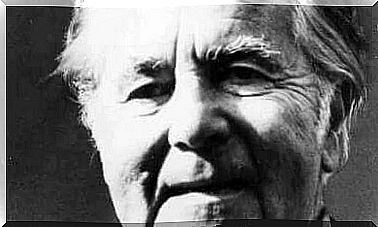Psychological Reactance Theory: Rebellion Without A Cause And Without A Channel

The Psychological Reactance Theory says that some people have a bias in their way of perceiving social order and their place in it. Therefore, they resist following norms, indications or standards. For them, it’s more motivating to take a different path.
We all know someone who seems to resist everything. If you tell her to go left, she goes right. If you tell her to go above, she goes below.
When asked why, she’s likely to say there’s no reason to be like everyone else, or that she’s like that, or things like that. If so, we are facing something that gave rise to a theory: the Psychological Reactance Theory.
These people often see norms as a restriction on their freedom or an unnecessary imposition. They pride themselves on their own rebellion, even if that rebellion is not aimed at achieving a relevant goal.
In fact, most of the time, there is no goal other than to follow the opposite side – because yes! Sometimes they do this openly, and sometimes they do it more covertly.
Many adopt reactive attitudes when they feel their freedom is being threatened.
However, there are some people who take this to an extreme. They are called “rebels without a cause”. This can bring many inconveniences to their lives. Let’s see in more detail…

The Psychological Reactance Theory and its parameters
According to the Psychological Reactance Theory, there are a series of parameters that define whether a behavior adjusts to reactivity or not.
Sometimes people resist the rules because of their arbitrariness or injustice. In other cases, it’s an inclination in their personality that drives them to do this.
The key parameters, according to the Psychological Reactance Theory, are as follows:
- Perception of freedom. The person only feels that he has freedom if he can go over a certain norm or parameter exerted on him. If that happens, she will feel free, even if she remains forced in other respects;
- Proportionality to the threat. The stronger the threat to a given behavior, the more reactance is produced. If a freedom is eliminated, reactance reaches its highest point;
- Importance of freedom. A person experiences greater reactance when freedoms that are very important to him are restricted. If they are not decreased, their reactivity will decrease.
- Relation to other freedoms. If the threatened freedom is related to other freedoms, reactance will tend to activate more strongly.
- Threat source. The less legitimate the source of threat to freedom, the stronger the reactance.
The most typical example of reactance can be identified in adolescents.
When a parent, for example, restricts a teenager’s arrival time, it is quite possible that a large reactance will be activated if the parent figure is not well respected or considered to be legitimate. So the teenager is likely to look for ways to get out of order.

The effects of reactance
The Psychological Reactance Theory says that these types of behaviors are problematic and generate a series of consequences for the person and their surroundings. It’s a distorted way of dealing with disagreements, creating a worrying normative void.
The main difficulties arising from this are the following:
- People begin to create bonds of mutual manipulation. This happens when one person resists and the other uses trickery to overcome the resistance. When an employee breaks a rule, the company imposes a punishment, then the employee breaks another rule again to not comply with the punishment, for example.
- It implies a useless expenditure of emotional energy. What reactance does is put even more stress on any conflict rather than resolve it. To sustain a conflict without surrendering, it is necessary to make great efforts, when in fact the conflict may not be worth it.
- It feeds inclinations and prejudices. Reactance prevents the true meaning of a constraint from being seen. Not all limits to freedom are negative. Many of them aim to ensure a greater degree of justice or collective well-being.
When a norm or an order violates individual freedom in something essential, the act of rebelling is completely legitimate. However, this is very different from adopting an attitude of disobedience in a systematic way.
We are talking about a disposition that can greatly corrode the person who practices it, those around them and the goals and targets that arise.









